The Secret Wife Read online
Page 2
He closed his eyes and drifted into a half dream state. He could hear sounds in the ward around him but his head was heavy as lead, his thoughts a jumble of images: of the war, of his friend Malevich shot and bleeding on the grass, of his sisters, of home.
In the background he heard the tinkle of girlish laughter. It didn’t sound like the plain nurse who had tended him earlier. He opened his eyes slightly and saw the tall, slender shapes of two young nurses in glowing white headdresses and long shapeless gowns. If he’d just awoken for the first time in that place, he might have feared he had died and was seeing angels.
‘I know you,’ one of the angels said, gliding over to his bedside. ‘You were in the imperial guard at the Peterhof Palace. Weren’t you the one who dived into the sea to rescue a dog?’
Her voice was low and pretty. As she came closer, he realised with a start that she was Grand Duchess Tatiana, the second daughter of Tsar Nicholas. While Olga, the eldest, looked like her father, Tatiana had her mother’s faintly oriental bone structure. She was gazing at him with intense grey-violet eyes, waiting for an answer.
‘Yes, I’m afraid that was me. My uniform was ruined, my captain was furious, and the dog was a stray who shook himself down and ran off without so much as a thank-you.’ He smiled. ‘I’m surprised you heard about it, Your Imperial Highness.’
She returned his smile. ‘I heard some guards discussing it and asked them to point you out. You must be a dog lover.’
‘Very much so. I have two at home, a Borzoi and a Laika. They’re scamps but I miss them terribly.’
‘My father is fond of Borzois. He had one he said was more intelligent than most human beings, and he was grief-stricken when it died.’ She wrinkled her nose prettily. ‘But the ones we keep in the kennels bark constantly. I’d love to have a dog of my own in the palace but it would have to be quieter. Perhaps you could advise?’
He felt honoured that a grand duchess was conversing with him in this natural, everyday fashion. ‘Of course, Your Imperial Highness. Do you prefer small or large dogs?’
‘I think small. And there’s no need to call me “Your Imperial Highness”. I am a nurse here, not a royal. Mama, my sister Olga and I are all training as nurses to help the war effort. These days I am known as “Nurse Romanova Three”, while they are One and Two.’
He chuckled at the impersonal moniker. ‘Do you like Terriers, Nurse Romanova Three? The Black Russian Terrier is a clever dog and not too boisterous. Spaniels are also popular with ladies for their silky coats. And then there are small breeds of Bulldog. I rather like French Bulldogs.’
She clapped her hands. “Oh yes! I love those serious wrinkled faces, as if they have the cares of the world on their shoulders.”
Her sister Olga, the other angel in white, called to say she was going through to the next ward. Dmitri expected Tatiana to follow but instead she lingered.
‘I see you have a leg wound,’ she said. ‘Is it terribly painful? Can I get you anything?’
He shook his head. ‘Thank you, I’m fine. I’m just annoyed that I was careless enough to get myself wounded in the first week of war.’
‘Is it a bullet wound?’
He thought back to the moment when he ran out to collect Malevich from the field, dragging him by his collar. In retrospect he’d felt a blow on his thigh but thought nothing of it as he concentrated on saving his friend. ‘Yes. I didn’t realise I’d been hit until we got back to base. It was odd because the pain and bleeding didn’t start until then.’ All of a sudden the blood had begun to gush and he’d collapsed on the grass. It was a mystery why it hadn’t bled earlier, out on the field – as if one of the saints was looking after him. After his collapse he remembered feeling very hot and starting to shiver, his teeth clenched, and they’d ripped off his trousers to see a ragged hole going all the way through his left thigh and grazing the right. Fortunately the bullet had not lodged inside. Perhaps that’s what had enabled surgeons to save the leg. Over the last weeks he’d been transported back from the front at Gumbinnen, East Prussia, via various medical stations, to the Catherine Palace in St Petersburg, where the grand staterooms had been converted into wards.
Tatiana asked his regiment and exclaimed when she heard he was in the 8th Voznesensk Uhlans: ‘You are one of my own men! I must take especially good care of you.’ Both Olga and Tatiana had been given honorary command of their own regiments on their fourteenth birthdays.
‘It’s a great honour to be nursed by my colonel.’ He grinned. ‘But I suppose I will have to behave myself with you around.’
They chatted for a while about the war, triggered only a few weeks earlier by the German Kaiser’s rampant militarism. It was still a shock to Dmitri, and Tatiana told him it was even more shocking to them as they had so many German relatives, their mother having been born there. She called the Kaiser a swine. Olga glanced in to look for her sister and made a brief, impatient gesture with outspread hands.
‘I must get to work,’ Tatiana said. ‘I am supposed to accompany a more experienced nurse and she will be waiting. But tell me, is there anything I can do to make your stay more comfortable?’
‘I don’t suppose you could lend me a book? Any book at all. I love to read.’ He hoped he wasn’t being presumptuous. ‘I would return it, of course.’
She seemed delighted. ‘I too love reading. Who are your favourite authors?’
He hesitated. So many good writers these days were anti-tsarist: Alexander Kuprin, Maxim Gorky, Ivan Bunin … he must choose from an earlier era: ‘Tolstoy, of course. And Chekhov.’
‘I agree with you,’ she said. ‘I much prefer the classics to the modern writers. My absolute favourite is Turgenev. Have you read Fathers and Sons?’
Dmitri was surprised, as the novel dealt with the younger generation rejecting the values of the old aristocratic order. ‘Not since I was a boy. I love the poetry of Turgenev’s language. He conjures images that stir the soul.’
She was amused: ‘You sound like a writer yourself.’
He made a face. ‘I used to keep a journal as a youth but not for a long while now. It was rather whining and self-indulgent.’
‘Really? I keep a journal. I try to describe events of the day truthfully. I like the challenge of finding exactly the right words and often they come to me when I am doing something completely different: working here in the hospital, or doing my embroidery, or …’ She stopped, colouring slightly.
He liked the way she spoke, slowly, considering her words, and the intelligence he could see in her eyes. ‘In that case you have the instincts of a writer.’
She laughed. ‘Oh, I could hardly pretend … no one reads my journal but me.’
‘Without an audience, you can express your truest feelings. I used to find writing very useful for understanding myself. You know how sometimes you react instinctively in ways that puzzle you? You think: why am I angry? Why does that make me sad? It’s fascinating to unravel the tiny spark that provoked the reaction, perhaps just an unintended nuance, something that struck a chord and triggered the emotion of a much earlier experience … human nature is the most compelling study of all.’ He stopped, feeling he was talking too much and perhaps boring her, but she seemed to be listening intently.
‘I know exactly what you mean,’ she said, biting her lip as if some example were flitting unseen through her mind.
Dmitri watched, thinking what an open, natural girl she appeared to be. He had expected the tsar’s daughters to be haughty and sophisticated, like the grandest ladies of the St Petersburg aristocracy, but Tatiana did not seem to have any airs. She spoke to him as if to an equal.
‘Nurse Romanova Three,’ a woman called from the doorway.
‘I’m coming, Sister Chebotareva.’ She gave Dmitri a quick, warm smile, said, ‘Till tomorrow,’ then hurried from the ward.
Dmitri watched her go with a smile on his lips, having completely forgotten his pain. He wondered what age Tatiana must be, then worked out that she was
seventeen, six years younger than him. In her manner she seemed younger still. And she was much more beautiful than he had ever imagined when he’d seen her from a distance. Her skin was creamy perfection, her eyes like deep pools, her lips stained as if by wild berries … If she had not been a Romanov, Dmitri would have flirted with her. Over his years in the imperial guard he had made a number of conquests amongst the young titled ladies of St Petersburg, although none had captured his interest for long. But here, he thought, here was a girl he could easily fall in love with.
Chapter Two
Next morning, Dmitri opened his eyes and gazed up at the ceiling, where cupids, griffins, and other mythological creatures danced in cornflower-blue semicircles. A vast chandelier of multiple tiers glinted in the sunlight. The walls were of white silk with delicately painted blue flowers. He was in the Blue Drawing Room of the Catherine Palace, a place he had sometimes glanced into when serving in the imperial guard. His neighbour in the next bed, a man named Stepanov, told him that the staterooms of the Winter Palace had also been converted into makeshift wards for wounded officers. Surfaces had been cleared of ornament and the priceless furniture replaced by hospital beds, but the andirons and fireguard were gilded bronze, and the elaborate clock on the mantel showed the Greek gods Bacchus and Momus in marble and bronze. The wealth of the Romanovs was unfathomable.
The royal family no longer lived in the Catherine Palace, preferring the relative intimacy of the nearby Alexander Palace in winter, the Peterhof in summer, and the extravagant luxury of the royal yacht, Standart, or their Crimean palace at Livadia for holidays. Most of the stately palaces lining the Baltic shores in St Petersburg, where Dmitri had worked, were kept for ceremonial purposes: to entertain visiting dignitaries, and as the setting for state occasions.
What must it be like to grow up with such limitless wealth, Dmitri wondered? To have an elephant house and Chinese theatre in your garden, to be driven around in shiny new automobiles by uniformed chauffeurs, to be able to buy whatever your heart desired? Tatiana seemed an unspoiled girl, but the sheer grandeur of her upbringing must set her apart. He knew her clothes were made by French couturiers and her hats shipped from a fashionable store in London; that her perfume came from Brocard & Co and her shoes from Henry Weiss. He had often noticed deliveries arriving by special messenger. Although he was the son of an army general, a member of a well-connected upper-class family, surely he couldn’t ever hope to become close to Tatiana? It was impossible, wasn’t it?
He watched the clock, wondering what time she would arrive. The previous day it had been mid morning when she stopped by his bed. He managed to eat some breakfast and had his dressing changed by the moustached nurse. She brought him a bowl of water and a razor and he shaved then combed his hair, keen to look presentable for Tatiana’s visit.
She bounced in at ten, her cheeks flushed from hurrying, three books tucked under her arm.
‘I hope I didn’t keep you waiting. I had lessons to attend, then I had to go to the Znamenie Church to pray for our soldiers. Here – would any of these interest you?’ She placed the books on the bedcover then pulled up a chair and sat by his bed.
‘How kind of you, Nurse Romanova Three.’ Dmitri smiled. He picked up the first book: Turgenev’s Fathers and Sons. ‘I will enjoy re-visiting this to see if it lives up to memory.’ She watched eagerly as he examined the others. ‘I’ve never read Tolstoy’s Kreutzer Sonata so I look forward to that. And Gorky’s short stories are perfect: I remember one about the cutting of a tunnel through a mountain – have you read it?’
‘Ah, that was so haunting. Do you think it can be true that mountains have a spirit that can harm those who damage them?’ Her eyes looked grey today, with flecks of violet round the edge of the irises. A tendril of auburn hair had slipped from the side of her white headdress.
‘I remember seeing such a tunnel being dug and thinking that it looked like an offence against nature. Gorky has captured that sense of a wound being inflicted. Thank you for the books. I will stop being such a disruptive, demanding patient now I am so well occupied.’ He stroked the expensive Morocco leather binding.
She glanced around, unsure whether to believe him, then realised he was pulling her leg. ‘Perhaps we might discuss them when you finish. I love to talk about books. I often write critiques of them in my journal.’
‘I can’t imagine when you find time to write your journal. It sounds as though your days are fully occupied: nurse, grand duchess, colonel …’ He was fishing, eager to know more about her life.
‘I write every evening before bedtime. In fact, I wrote about you last night.’ She coloured. ‘Mama tells me you are a hero, that you rescued a wounded officer while under enemy fire. She is going to award you the Golden Arms sword.’
Dmitri was surprised: ‘It’s an insurance policy all soldiers follow. If you see a chance, you slip out to bring back the wounded, hoping that one day someone will do the same for you.’ He didn’t tell her the officer was a friend, and that he still had no word about whether Malevich had survived his wounds. He knew he would choke up if he spoke of it.
‘Nevertheless, I’m sure they don’t give bravery awards to just anyone. I suspect you are being modest. You have a heroic air.’ Her eyes were sparkling.
Now he laughed. ‘I’m not sure what a heroic air is! My father was a genuine hero. He was a cavalry general in Tsar Alexander’s army, who served in many campaigns, and in 1904 became Viceroy of Georgia. He has so many decorations pinned on his jacket it is heavy as a suit of armour. I’m just a simple cavalryman following orders.’
‘Does your father fight in the present war?’
‘No, he has retired to my home town of Lozovatka, in Evkaterinskaya Province.’
‘I have never been there. Is it beautiful?’
Dmitri wrinkled his nose. ‘It’s a very small town, set on a pretty river not far from the Sea of Azov, but Your Imperial Highness would have no reason to go there. They have no society to speak of. In my childhood it was rural, but they have started mining for minerals and great slashes are being torn through the landscape, just like Gorky’s tunnel.’
‘Do you come from a large family?’ She was regarding him intently. ‘What kind of childhood did you have?’
‘Not as large as Your Imperial Highness’s. I have two elder sisters, Vera and Valerina, but no brothers. The girls were always trying to rope me in to their games, dressing me in costumes and making me perform in their plays. You have no idea how character-forming it is for a young boy to be forced to wear a wig and gown and have his cheeks rouged! I escaped around the age of nine after I befriended one of the groundsmen on our family’s estate. He taught me how to hunt and fish, since my father was often away from home. All in all, it was a fairly average childhood.’ He did not tell her about the fierce rows when his irascible father came back, and the vicious beatings he had endured, sometimes with a horsewhip.
‘Tell me, are your sisters married now?’
‘Vera is married to Prince Alexander Eristavi-Ksani of Georgia, but Valerina still lives at home with our parents. She is twenty-six years old and I hope she will yet find a husband, but she is the quieter of the two, a little shy perhaps. I’m very close to her.’
‘I would love to meet them!’ Tatiana exclaimed. ‘I know hardly any women outside our family. Mama had just begun to allow Olga and me to attend the occasional ball or soirée when war broke out. We used to hear music floating up to the windows, and see fine ladies ice-skating on the Baltic, but no matter how hard we pleaded we were scarcely ever allowed to join them. Aunt Olga – Papa’s sister – would occasionally invite us, but I think the ladies felt awkward about introducing themselves to us. I should probably never have met you, Cornet Malama, had it not been for this war, and your injury.’
‘I am very glad we met, Nurse Romanova Three. Our conversation is helping to relieve my frustration at being stuck in bed, my ears assailed by the grunting and snoring of my fellow officers.’ Her hand re
sted on the covers not far from his, and he longed to touch it, or even raise it to his lips. He might have done so with another woman, but dared not attempt it with a Romanov grand duchess.
Her sister Olga came into the room and approached them. She was shorter than Tatiana and not nearly as pretty, with coarser features and plain blue eyes. ‘Who is this patient who occupies all your time?’ she asked, her eyes merry. ‘Could it be Cornet Malama, the officer about whom you regaled us all last evening?’Tatiana blushed scarlet, and Dmitri bowed his head, saying ‘A votre service.’
‘I beg pardon for interrupting,’ Olga continued, ‘but Sister Chebotareva has asked if we will go to the annex and change dressings.’
Tatiana rose.
‘Thank you again for the books,’ Dmitri said. ‘I will begin the Turgenev immediately.’
‘I’ll stop by later to check how much you have read,’ Tatiana promised.
The girls scurried out of the room and Dmitri lay in a daze. She seemed to like him. At least she enjoyed chatting with him, and she had mentioned him to her mother and sister. Did that mean there might be a chance of a match between them? His family owned a large estate but their wealth was nothing compared to the immense riches of the Romanovs. Would he be considered too lowly? Were they hoping to find foreign princes for all four Romanov girls, or might a Russian general’s son suffice?
Stepanov called over: ‘Congratulations! I heard her say you are to be awarded the Golden Arms!’
Dmitri frowned, wondering how much of the conversation Stepanov had heard. He did not feel like talking. He wanted to close his eyes and remember the sweet jasmine scent of Tatiana’s skin, the directness of her gaze, the soft tone of her voice, the way her emotions flickered across her face for any who cared to read them. He opened the cover of the Turgenev novel and saw that she had written her name on the frontispiece, in both Russian and English, her lettering neat and evenly spaced. He ran his finger over it lightly, then lifted the book and breathed in the smell of the pages. Should he try to stop himself falling in love with her? Already he suspected it might be too late.

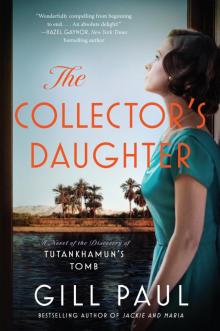 The Collector's Daughter
The Collector's Daughter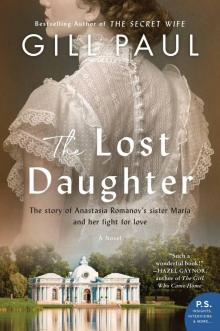 The Lost Daughter
The Lost Daughter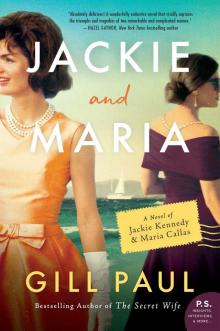 Jackie and Maria
Jackie and Maria The Affair
The Affair Love...Maybe
Love...Maybe The Secret Wife
The Secret Wife No Place For a Lady
No Place For a Lady Another Woman’s Husband
Another Woman’s Husband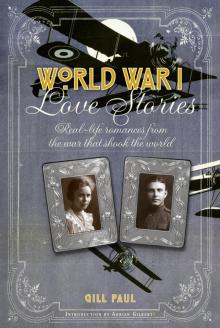 World War I Love Stories
World War I Love Stories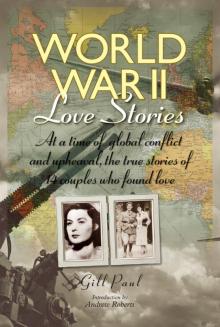 World War II Love Stories
World War II Love Stories